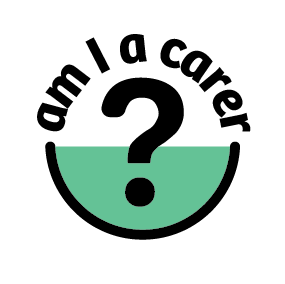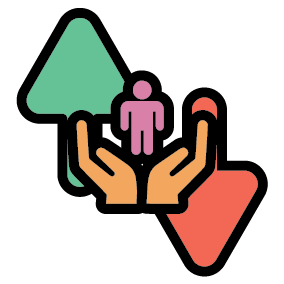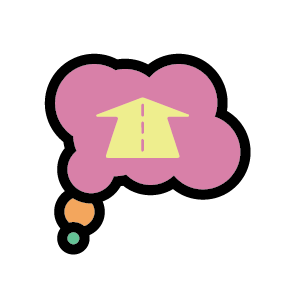Looking after yourself

When you spend most of your time looking after other people it’s easy to forget to look after yourself too. But it’s really important – because unless you’re fit, healthy and relaxed you can’t do a great deal for others.
Looking after yourself will help you keep going – even when times are tough. This is not selfish.
I realised that I had to devote time and energy to MYSELF
My parents didn’t force me to but I have dedicated a lot of time and energy to my little sister during my teenagehood. When I’ve started university I moved into a dorm and I realised that I had to devote time and energy to MYSELF in order to develop myself. This distance with my family and my sister’s disability was good for me and it helped me to find a right balance between building my...read more→
I should have told someone
My biggest regret is that I did not tell my school friends or adults I trusted what my life was really like. I kept difficult parts of my life hidden, whilst I tried to have normal experiences in other parts of my life. However this did not address the key problems, and therefore nothing got better. If I could go back in time I would tell someone what was happening. I’m sure that good people...read more→
Support from friends and from professionals
My childhood friend Elise has two brothers with mental disabilities. We have always talked together about our feelings about the disability of our siblings. This speaking space without judgment and taboo helped me a lot. With Elise I had the right to tell all of my feelings and thoughts I could express my angriness my sadness and my joy linked to my sister’s disability without judgment. It was very hard for me to ask my...read more→
Things We Do to Look After Ourselves
Here is a list of things we do to look after ourselves: Talking to friends at school Rudy, 11 years old - My friends at school know I am a young carer and about my learning difficulties, so they are helpful to talk to. Some friends have come with me from Primary school and some are new friends at Secondary school. Lee, 9 years old – I don’t have friends I can talk to about...read more→
Fruit and vegetables give your body energy and vitamins that are crucial. Chocolate, sweets, fizzy drinks and fast food might make you feel good when you eat them, but they are full of rubbish and you will feel hungry again very soon. Use them as a treat –once in a while- and limit how much you have.
Most of us need at least 8 hours sleep every night otherwise it’s really hard to concentrate during the day, to do well at school or keep an eye out for other people. People who don’t sleep well are also more likely to suffer from depression and feelings of sadness.
Here are some things that might help you sleep better:
- Set a regular bedtime to get your body into a pattern
- Get lots of exercise during the day (try not to exercise just before bed – that’ll keep you alert)
- Keep away from coffee and soft drinks after about 4pm
- Relax before bedtime – play some soft music and dim the lights
- Try not to nap during the day
- Avoid all-nighters
- Put a notebook near your bed where you can write down any things you may need to remember or any concerns that are keeping you awake – ‘sleeping on it’ does actually work!
- Do things that build your self esteem and have some fun – you’re more likely to get reasonable sleep if you’re feeling good about yourself.
If you are worried about not sleeping talk to your GP or a counsellor. They can give you some help and come up with some other ideas that might help too.
Exercise is a crucial part of looking after yourself. It makes your body work better, is proven to reduce stress, and after exercise your brain releases chemicals that make you feel better.
Caring can sometimes puts your body under a lot of pressure. Caring for long hours can be exhausting, lifting heavy things can put strain on your back and not getting enough sleep can be tiring. “It is ok to help, but do it not too much. You don’t want psychical problems yourself” (Annet, young carer from the Netherlands).
Try to take some time out every once in a while. Get away from home and do something that makes you feel good – like laughing with friends, playing sport, watching a movie or playing in a band. If you feel guilty or uncomfortable about leaving your relative at home by themselves then you might:
- Organise another family member or friend to come in and help so you can have time off;
- Talk to your family or someone you trust about how you’re feeling.
Taking a break doesn’t mean that you are weak or that you can’t handle things– it just means that you are looking after yourself.
You should be very proud of your role as a young carer. It’s important to stop and remember how awesome what you are doing is and to reward yourself for a great job done.
Here are some rewards that other young carers treat themselves to every once in a while:
- Listen to your favourite CD with the phone off the hook
- Write down ten things you’re proud about yourself in a diary
- Check out a movie or take a night off with a friend
- Buy yourself something nice
- Rearrange your bedroom
- Go to the pool or gym and have some time to yourself
- Cook your favourite meal followed by a delicious dessert
- Go through your photo album
- Go to the local fun park, arcade or fair
- Have absolutely no plans for the weekend.
You may feel a whole range of emotions when caring for a relative or friend. You can feel proud, but also angry, sad or frustrated. There’s no such thing as ‘right feelings’ or ‘wrong feelings’. Remember that all of these feelings are natural and that it’s OK to feel them.
Sometimes you might feel angry with the person you care for. You might be angry that they can’t do the same things with you they used to, or because you have to do things for them that other young people don’t have to do for their parents or brothers and sisters. You might feel angry with people around you who don’t understand your home situation or who say hurtful things to you.
You may find that the challenges you face while being a carer make you feel low or depressed. You may feel that you are not succeeding in some parts of your life and experience frustration.
Feeling any of these emotions isn’t a bad thing but sometimes we have to think about how we express them. For example, when we’re angry we need to work out how to release the anger in a way that doesn’t hurt us, other people or things around us.
Get things out in ways that are safe (so that you and others don’t get hurt). This could be by writing it down, talking it through or doing something more creative like writing, painting, singing or drawing how you feel.
There are some simple ways to train your mind to counteract negative thoughts with positive thoughts. One approach is:
- Identify something really positive that someone has said to you, or something really positive that you know you have done.
- Turn that into a positive memory.
- Whenever you have a negative thought, or you think of someone who has been nasty to you, remember your positive memory.
- The more you do this, the more the negative emotions will stop.
Another approach is as follows:
- Set a goal that you are working towards.
- Imagine what it would feel like to achieve that goal.
- Picture yourself as a winner, having got exactly what you want.
- Remember that feeling, hold onto it and remember it whenever life is tough.
You can also try to take some time out to focus on something positive every day, even if it’s only something small. What good have you done today? What positives are around you? Try and write a statement of praise to yourself and remember it when times are difficult!
Sometimes it might feel like your brain is constantly going, going, and going.
Mindfulness means taking some time to relax by limiting your thoughts and focusing on your breathing. This might mean listening to music and chilling out, or doing some guided relaxation.
Click here to read a self-release emotional stress technique, recommended by Monique Jacques, former young carer from Belgium.
It can be a huge relief and a release of stress to be able to get things off your chest, by talking to someone you trust about what is going on. This could be from your teacher, another relative, a good friend, a doctor, social worker or from our young carer’s office. It could be from a telephone helpline where you can remain anonymous (not give them your name) if you prefer.
Try to find other people in the same situation as you – because they’ll understand what you’re going through. Camps, support groups and catch up days are a great place to meet other young carers.
Look out for the symptoms of depression and anxiety, which are:
- Feelings of helplessness.
- Loss of interest in activities you used to enjoy.
- Appetite or weight changes.
- Difficulty sleeping.
- Anger or irritability.
If you are demonstrating any of these symptoms, you MUST ask for help. Do not suffer in silence, because that will make things worse.
Don’t be afraid to ask for help. It is not a sign of weakness but a sign of immense courage. You are not a superhero and you do not need to fix everything on your own. Speak to someone within your support network.
You did not and cannot cause the condition or illness, and you should not feel any guilt about the situation you and your family are in.
(This section is inspired by the website youngcarer.info by Mike Raynor, former young carer, UK, from Young carers companion, Information booklet for Young Carers, Family Carers Ireland and from “Who cares? We do” Carers Australia’s Supporting Young Carers Project)
Thank you to Annet, young carer from the Netherlands, for her input on the tips!










